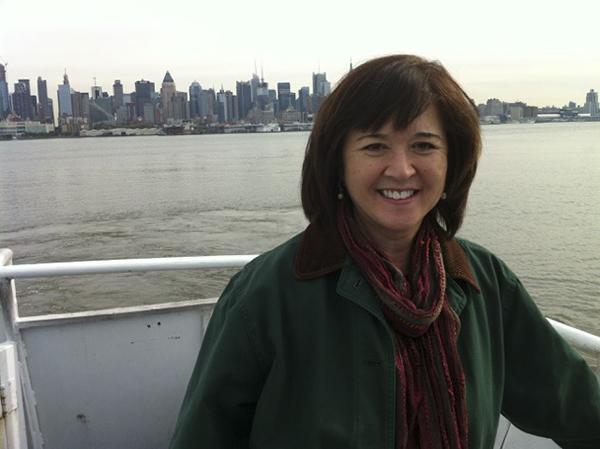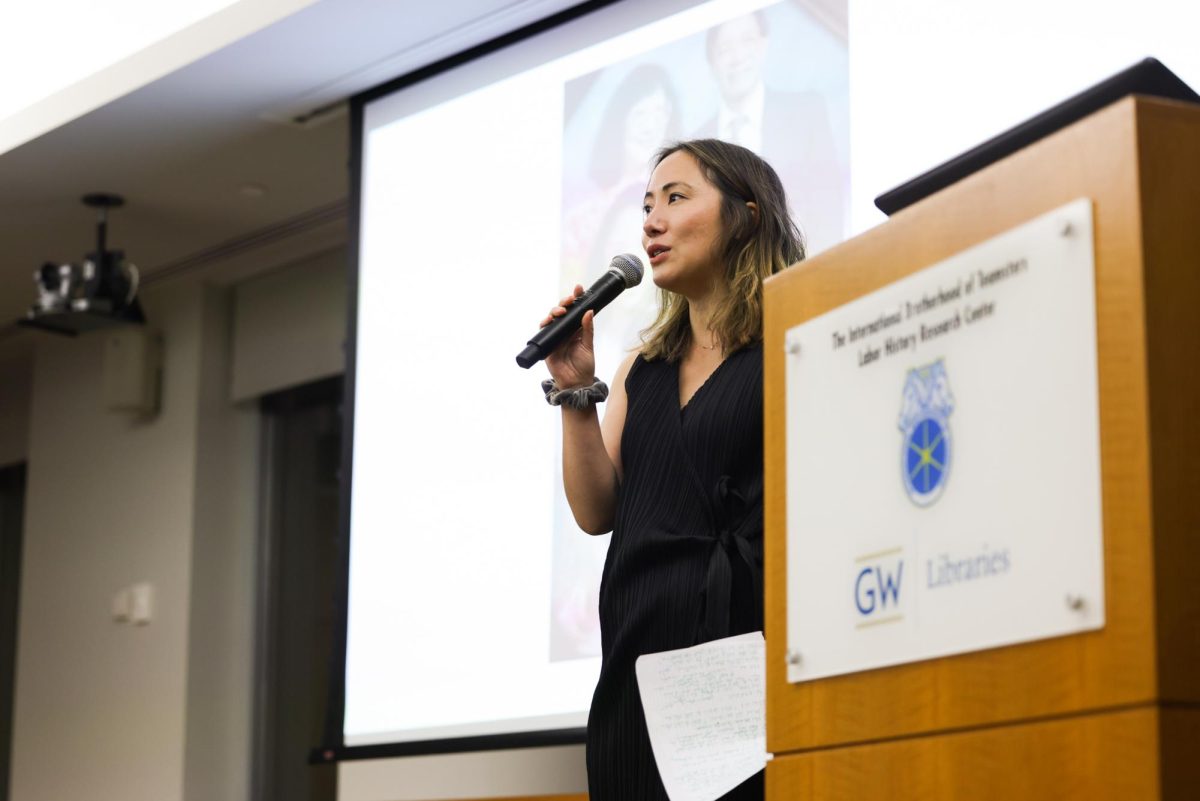Since 1984, Corcoran academic studies professor Karen Kasmauski has photographed destinations like Malaysia, Alaska and Russia for National Geographic. Her latest project is a little more personal.
Kasmauski’s most recent work, a documentary about Japanese war brides entitled “Fall Seven Times, Get Up Eight,” aired on BBC World News in August. Kasmauski and the other two directors are the daughters of women featured in the film.
In the documentary, viewers learn about the romantic relationships that formed between women in Japan and American soldiers following World War II – including Kasmauski’s own mother, who married Kasmauski’s father, a former naval officer from Virginia. A handful of Japanese women like Kasmauski’s mother moved to America with their new husbands because of poor post-war living conditions.
“These women knew that their future was not going to be happy in Japan and they needed to figure out how to better it for themselves and for their future children,” Kasmauski said. “How are they going to make their lives better? And I think that’s not only a Japanese war bride story – it’s all immigrant stories.”
The film explores the lives of Japanese brides and mothers after moving to the United States, chronicling their struggles with isolation and the adjustment to a new culture. Kasmauski recalled that the biggest change for her mother was raising American children while holding on to her Japanese heritage.
She first met her co-directors Kathryn Tolbert and Lucy Craft about 25 years ago while working on a National Geographic assignment in Tokyo. After getting to know each other, the three realized that all of their mothers had met and married American servicemen after the war.
“[Craft] was talking about wanting to collect all this stuff on her mother and she was doing interviews and all that. So I just said, ‘Why don’t you just do a film?’ and I told her I’d help her on it,” Kasmauski said.
To fund the film, the directors ran a campaign on Kickstarter and raised nearly $38,000, which allowed them to hire the production company Blue Chalk Media to assist with creating the movie.
Kasmauski, who has taught photojournalism and newswriting courses at the Corcoran College of Arts + Design for the last 10 years, first took up an interest in photography as a student at the University of Michigan where she contributed to the school’s newspaper, The Michigan Daily. Though she originally did not intend to pursue photojournalism as a career, she took a job at The Virginian Pilot in Norfolk, Va. after graduating and later moved on to National Geographic.
For Kasmauski, who considers herself a “visual storyteller,” her work always seems to focus on one thing – the people. From stories about the AIDS epidemic in Uganda to the rise of obesity in the U.S., all of her projects have human stories at their core.
She said she hopes what people take away from the film is how “tenacious” her mother and other war brides were when it came to doing what they needed to survive.
“This is a group of women who literally found peace with a group of people who were literally trying to kill them not even five to seven years ago,” she said. “The fact that they could come together and forgive and form families and form a life together is a lesson we really need to learn more than ever in this day and age.”






